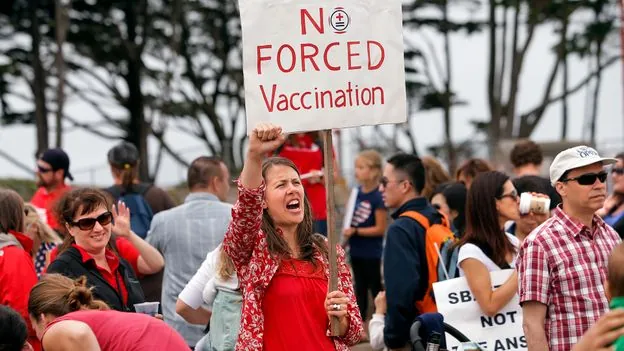
The Shocking Roots of the Anti-Vaccine Movement: A Timeless Battle
2025-09-07
Author: Jacques
Vaccine Skepticism: A Historical Perspective
While it may feel like vaccine skepticism is a modern issue, its origins stretch back centuries. With humanity’s long history of grappling with catastrophic diseases, the emergence of the smallpox vaccine in 1796 marked a pivotal moment. Smallpox devastated populations, claiming around 300 million lives in the 20th century alone.
The Birth of Vaccination
Dr. Edward Jenner, a British physician, pioneered the smallpox vaccine by observing that milkmaids infected with cowpox appeared immune to the more lethal smallpox virus. His groundbreaking experiment involved injecting an eight-year-old boy with cowpox material, leading to the birth of the first vaccine, aptly named after the Latin word for cow, "vacca." Jenner’s hope was to eradicate this deadly disease.
Victory Over Smallpox: A Historical Triumph
Fast forward to 1980, when the World Health Organization announced the eradication of smallpox, a triumph attributed to extensive vaccination efforts. This milestone opened the door for numerous vaccines that have since saved an estimated 154 million lives over the past five decades, addressing everything from influenza to COVID-19.
A Growing Opposition: The Anti-Vaccine Movement Emerges
Yet, despite this historic victory, an anti-vaccine sentiment has begun to swell, even influencing high-level governmental policies. Recently, the U.S. health secretary was scrutinized over vaccine hesitancy, while Florida’s surgeon general unveiled plans to dismantle vaccine mandates. So, is this unrest a contemporary phenomenon, or echoes a much older resistance?
Roots of Vaccine Criticism: A Historical Recap
The initial success of vaccination led to the establishment of mandatory immunization laws in the UK with the Vaccination Acts of the mid-1800s. Almost instantly, anti-vaccination leagues sprang to life, disseminating pamphlets with alarming titles like "Vaccination, a Curse." Protests erupted, some even evolving into riots.
Critics from the Start: Opposition Before Vaccines
Ironically, resistance to vaccination predates vaccines themselves. Early inoculation techniques, like variolation in the 1720s, met fierce criticism. Clergy warned that intervention against disease was a blasphemous act against divine will.
The Undying Argument of Personal Freedom
By the early 1800s, the anti-vaccine movement transformed into a health freedom crusade, particularly against government mandates. In Sweden, low vaccination rates led to a disastrous smallpox outbreak, but the subsequent push for immunization illustrated the stubborn refusal of some to recognize the benefits.
The Anti-Vaccine Sentiment Persists
Fast forward to today, many arguments reflect those of the Victorian era. Claims suggesting that vaccines are harmful relics of medical tyranny persist alongside unfounded beliefs that vaccines alter DNA or act as a guise for profit. These narratives continue fueling skepticism and hesitancy, making it clear that the battle against misinformation remains as pertinent as ever.
Public Health on the Line: The Consequences of Vaccine Hesitancy
As public health struggles against growing vaccine hesitancy, outbreaks of preventable diseases like measles are on the rise again. In the U.S., the decline in vaccination rates has led to the first pediatric measles death since 2003. Mere exposure to anti-vaccine conspiracies can heavily influence parental decisions, posing a dire threat to community health.
Conclusion: Learning from History
As we confront the modern anti-vaccine movement, it becomes clear that understanding its historical context may be crucial to combating misinformation today. The resilience of health conspiracy theories throughout history highlights the urgent need for clear communication and education in public health.









 Brasil (PT)
Brasil (PT)
 Canada (EN)
Canada (EN)
 Chile (ES)
Chile (ES)
 Česko (CS)
Česko (CS)
 대한민국 (KO)
대한민국 (KO)
 España (ES)
España (ES)
 France (FR)
France (FR)
 Hong Kong (EN)
Hong Kong (EN)
 Italia (IT)
Italia (IT)
 日本 (JA)
日本 (JA)
 Magyarország (HU)
Magyarország (HU)
 Norge (NO)
Norge (NO)
 Polska (PL)
Polska (PL)
 Schweiz (DE)
Schweiz (DE)
 Singapore (EN)
Singapore (EN)
 Sverige (SV)
Sverige (SV)
 Suomi (FI)
Suomi (FI)
 Türkiye (TR)
Türkiye (TR)
 الإمارات العربية المتحدة (AR)
الإمارات العربية المتحدة (AR)